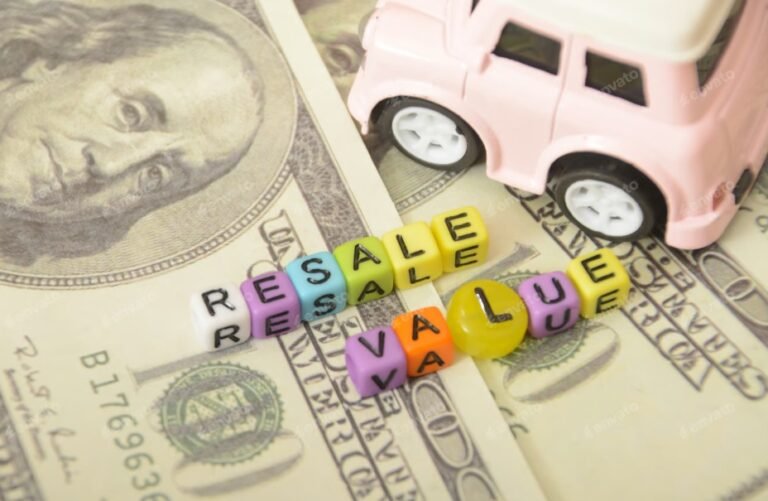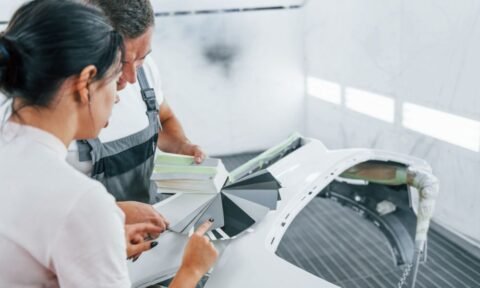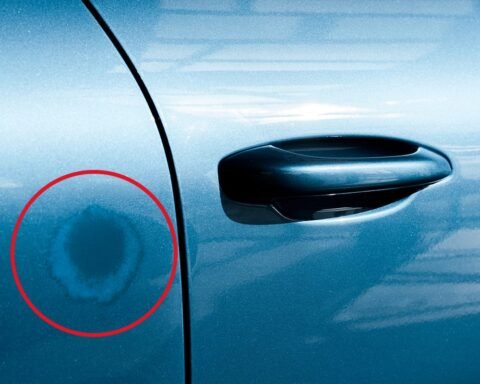When it comes to selling your car, getting the best price possible is always a priority. Over time, cars naturally depreciate, but with the right care and strategies, you can maximize its resale value and secure a better deal when the time comes. Whether you’re planning to trade it in or sell it privately, here are some effective tips to help you boost your car’s resale value.
1. Keep Up with Regular Maintenance
One of the simplest yet most effective ways to maintain your car’s value is by keeping up with regular maintenance. Potential buyers will be more willing to pay a premium for a well-maintained car, and showing them a complete service history can work in your favor.
Key Maintenance Tips:
- Follow the manufacturer’s recommended service intervals.
- Regularly check and change the oil, brakes, tires, and other essential components.
- Address minor issues promptly before they turn into costly repairs.
- Keep detailed records of all maintenance work, including oil changes, inspections, and repairs.
2. Maintain Your Car’s Exterior and Interior
First impressions matter, and the condition of your car’s exterior and interior is often what buyers will notice first. A well-kept car will leave a lasting positive impression, making it easier to justify a higher resale price.
Exterior Care:
- Regularly wash and wax your car to protect the paint.
- Address dents, scratches, and rust spots as soon as possible.
- Consider paint protection or ceramic coatings to maintain the shine and shield from environmental damage.
Interior Care:
- Vacuum the seats, floor mats, and carpets regularly.
- Clean and condition leather seats to prevent cracking.
- Avoid smoking or eating in the car to prevent odors and stains.
- Protect the dashboard from sun damage by using a sunshade.
3. Invest in Minor Repairs
Fixing minor issues before listing your car for sale can significantly impact its value. Buyers are more likely to negotiate if they spot imperfections, so making small investments in repairs can often lead to a larger return in the sale price.
Key Areas to Fix:
- Repair any chips or cracks in the windshield.
- Replace worn-out tires or brake pads.
- Address any engine warning lights or electronic issues.
- Replace broken or malfunctioning lights and mirrors.
4. Keep Your Mileage in Check
The mileage on a car is one of the main factors that impact its resale value. While it’s difficult to control how much you drive, keeping your mileage below average for the car’s age can significantly boost its value when you decide to sell.
Mileage Management Tips:
- Use alternative modes of transportation for short trips.
- Carpool when possible to reduce mileage accumulation.
- Consider renting a car for long road trips to keep your own car’s mileage lower.
5. Keep Your Car as Original as Possible
While custom modifications can be fun, they can negatively affect your car’s resale value. Most buyers prefer vehicles in their original condition, as it gives them more flexibility to make their own modifications. Stick to original parts, and if you do add any aftermarket features, consider reverting them to stock when selling.
Things to Avoid:
- Extensive engine modifications.
- Custom paint jobs that may not appeal to everyone.
- Non-standard wheels or tires that don’t match the car’s intended performance.
6. Consider Timing Your Sale
The timing of your sale can have a significant impact on your car’s resale value. Selling during certain seasons or periods of high demand can help you secure a better price.
Best Times to Sell:
- Spring and summer: These seasons are ideal for selling convertibles and sports cars.
- Before a major model redesign: If a new model is about to launch, try to sell your car before the announcement to avoid a sudden depreciation in value.
- Before your car hits major mileage milestones: Buyers may be hesitant to purchase a car that is nearing 100,000 miles, so selling before you hit such benchmarks can help you get a better price.
7. Get a Professional Detailing Before Selling
A professional detailing job can significantly improve your car’s presentation when it comes time to sell. Not only will it make your car look its best, but it also demonstrates to buyers that you took good care of it.
What Detailing Includes:
- Deep cleaning of the interior, including carpets, seats, and dashboard.
- Polishing and waxing the exterior to restore the paint’s shine.
- Cleaning the engine bay to make the car look clean under the hood.
- Addressing any minor cosmetic issues such as scratches or stains.
8. Price It Right
Setting the right price is crucial for maximizing your car’s resale value. If you price it too high, you might scare away potential buyers; if you price it too low, you may leave money on the table. Research the market value of similar cars and take into consideration your car’s condition, mileage, and features when setting the price.
Pricing Tips:
- Use online tools such as Kelley Blue Book or Edmunds to determine the fair market value of your car.
- Look at local listings for similar vehicles to gauge what buyers are willing to pay.
- Be willing to negotiate, but know your bottom line.
9. Consider Selling Privately
While trading in your car at a dealership is convenient, you may not get the best price. Private sales often allow you to negotiate directly with the buyer and get closer to your asking price.
Private Selling Tips:
- Create a detailed listing with high-quality photos and a comprehensive description.
- Be transparent about the car’s condition and history.
- Meet potential buyers in a safe, public location and ensure all paperwork is properly completed.
Conclusion
Maximizing your car’s resale value isn’t about making major investments — it’s about consistent care and attention to detail over time. From keeping up with regular maintenance to presenting a well-cared-for vehicle when it’s time to sell, these small steps can add up to a significant difference in your car’s resale price. By following these tips, you’ll be in the best position to get top dollar for your vehicle and make the selling process as smooth as possible.







